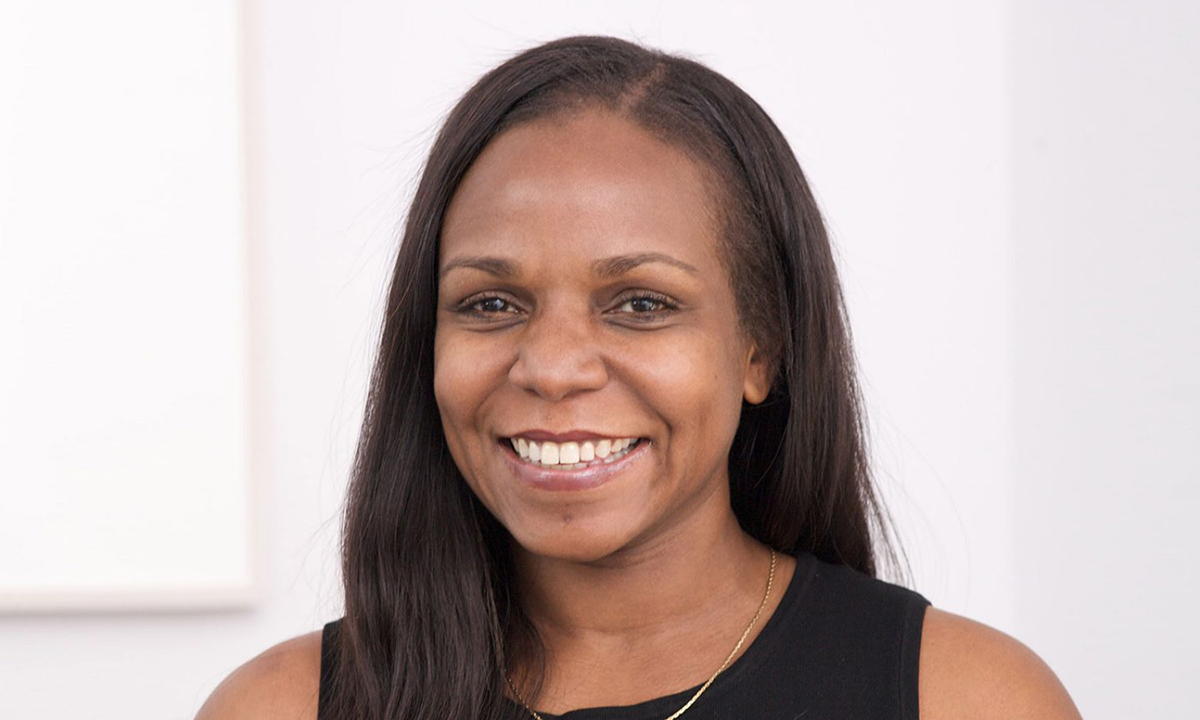Ending ‘Child Poverty Surveillance’: NYU Professor On Schools & Child Welfare
“Child protective services should not be the go-to for cases of unintentional neglect related to poverty,” social work professor argues

Get stories like this delivered straight to your inbox. Sign up for The 74 Newsletter
Thousands of times every year, New York City school staff report what they fear may be child abuse or neglect to a state hotline. The vast majority of those calls, however, lead to investigations that yield no evidence of maltreatment.
Between August 2019 and January 2022, only 24% of investigations prompted by calls from school staff found evidence of abuse or neglect compared to a citywide rate of 36% in 2020 — meaning K-12 workers make allegations that do not get substantiated far more often than most other professions.
Teachers, with whom children spend most of their day, misreport more than any other school staff: Two thirds of their calls to the state hotline are unfounded, according to data obtained by The 74 through a public records request.
Meanwhile, families say the investigations plunge their lives into deep uncertainty and inflict lasting traumas on their kids. Parents describe children with recurring nightmares, fearing every knock on the door may be a caseworker looking to snatch them from their home.
Darcey Merritt, associate professor of social work at New York University, regularly engages with families impacted by the child welfare system in her work and research. She also serves on the Child Maltreatment Prevention Committee of the American Professional Society on the Abuse of Children.
Over the years, Merritt has come to see the system as overly punitive toward poor families who love their children but may struggle to meet their basic needs due to lack of resources.
The expert believes it’s time to reimagine child welfare to better support those families: “We need to start the whole thing over,” she said.
The 74 spoke to Merritt to learn what issues she sees in child protective services — and what can be done.
This conversation has been lightly edited for clarity and length.
The 74: What should people who work in schools understand about the child welfare system?
Darcey Merritt: We can’t disentangle neglect from poverty, it’s inappropriate to do so.
On any given day, 76% of the children and families that are exposed to child welfare are there because of some form of neglect. And neglect is tethered to poverty: supervisory neglect, physical neglect, which refers to people not having appropriate food, clothing and housing.
A lot of these issues related to neglect are structural issues that are outside the control of parents. Yet [child protective services] is blaming parents for their unfortunate, involuntary socio-economic statuses. So that’s a problem.
Teachers are mandated to report out of an abundance of caution if they feel like a child is unsafe for whatever reason. But there’s got to be a way where mandated reporters first figure out how to be more useful in addressing the actual problem. If a child has dirty clothes consistently every day, let’s figure out what to do about that without getting CPS involved.
I think there needs to be changes in state mandating laws, so [reporters] are encouraged, maybe even required, to first figure out how to address the problem. If they don’t have enough child care, well, then let’s find child care. If they don’t have enough food, let’s find food. Laundry machine is broken and they can’t go to the landlord because they’re behind on their rent? Let’s figure that out. These are all things that are happening.
What might those changes look like?
We need to start the whole thing over and reserve child protective services for those kids who have been physically and sexually abused. We need to have a separate institution, a separate agency or organization, working with communities and neighborhoods to provide support for all the other kids so that the go-to response isn’t to report a child who’s poor. It all comes down to money and what our society is willing to do to make sure that people have a standard level of resources and support to be able to raise their families.
We need to really have more respect for these parents because they love their children and they are victims of an inequitable society.
To make sure I’m understanding correctly, are you saying child protective services should not be the ones responding to neglect charges?
I do not think they should be handling neglect charges. I think that some other agency that’s not connected to the stigma of having a CPS case should respond. Whatever support we put in place, it needs to be untethered from the institution of child protective services.
I’m not saying we shouldn’t help these families. I’m saying the child protective services is not the agency to handle neglect cases that have to do with poverty.
New York State law, as of 2021, requires implicit bias training for mandatory reporters. Does that rule go far enough to mitigate some of these problems?
I don’t think it goes far enough. You can’t just do a training and call it a day. You have to have something in place so that when people are making decisions, you can check whether or not this decision was made because of some unseen bias. For example, ‘Oh, this child’s parent has been involved with the carceral system. Go ahead and report this one.’ That’s how people continue to cycle in between these harmful punitive systems.
We have our own Western idea of what safety and family well-being means and it’s all from a deficit lens. Rarely do we look at family dynamics and functioning from a strength-based perspective. I interview a lot of moms for my research and all of them say, ‘We love our children, but we needed help.’
It’s a really serious problem and the racial disproportionality is going to continue (because impoverished parents have no choice but to rely on the government for welfare). Black children are highly disproportionately involved with the child welfare system and before Black children, Native kids have the highest disproportionality of involvement. People don’t even pay attention to that.
Interesting. I didn’t know that.
The highest is Native American children, then Black children, then Latino children. White children are not overly represented in the system.
Some parents have told me they can’t help but know about child protective services, or, in New York City, the Administration for Children’s Services, because either they’re personally impacted or they know someone who is. Meanwhile, other families are completely oblivious. Have you seen that difference between communities?
It’s true. Once you’re involved, you know what that looks like. Parents’ language is even institutionalized. Have you heard people who are involved with the carceral system say, ‘Oh, somebody caught a case.’ These ACS-impacted moms literally say, ‘Well, I caught an ACS case.’ That language is a thing.
And another group doesn’t have any idea what ACS is.
What are the harms of overreporting and what are the harms of underreporting [to child protective services]?
The obvious harm of underreporting is that we may miss children who are in actual danger from parents that abuse their children.
This whole issue of, ‘out of an abundance of caution, we need to report anything that we suspect might be problematic,’ that’s where the rub lies. We have to figure out how to pull out those issues that are related to poverty.
The harm of overreporting is that when CPS comes knocking at your door, you are immediately traumatized. The very minute a child is taken from your home for any amount of time, you are immediately traumatized. They then have workers coming in on a regular basis, they’re being mandated to do certain groups and therapy, all kinds of things that don’t relate to the fact that maybe they need some money.
I personally renamed CPS the ‘child poverty surveillance.’ That’s my own little term I’ve made up for them.
You have to be subjective when you’re making a decision about whether or not a child is in danger. And one needs to be really, really reflective about their implicit biases, because [the worry is] a poor Black child will be treated differently than a poor white child.
You live and work in New York City. Do mandated reporters, like school staff, lean more toward over or underreporting?
They lean more towards overreporting.
What messages are those people receiving when they get trained? Is it ‘When in doubt, report?’ Is it, ‘Take every precaution before you do?’ What are folks hearing?
I think they’re hearing, ‘When in doubt, report.’ I think that’s what they’re hearing.
For the most part, folks are afraid because if you don’t report something and the child ends up really harmed, then the liability is on the mandated reporter. I think they’re being given a double message: ‘When in doubt, report,’ but on the back end, ‘Be careful, because there might not be a need for CPS to be involved.’
In schools, especially those that are under-resourced, they don’t have the means to help a family with their basic needs and their financial needs. [Instead], teachers are by law required to report to child protective services. It just makes no sense. The solution does not match the problem. And it causes harm in the meanwhile.
Given the system as it stands, if you are a mandated reporter in a school setting, how do you respond in a way that both protects a child in real danger, but also won’t jeopardize a family for no reason? How do you weigh that judgment call?
It’s hard.
I had this conversation with my partner who teaches in Philadelphia. He’s not a social worker. I’m a social worker. But he [has to play the role of] a social worker, because he has to do social work as a teacher.
When something’s going on with a child, my recommendation is to find out what’s happening from the family first. I recommend taking more caution before making a phone call [to the state hotline]. See if you can come up with a solution first.
That puts a greater burden on teachers because then they end up being social workers as well. So it’s a very fine line, finding out what resources one has at the school, if the nurses or the climate officers or whoever the people are at the school [can help].
I’m only speaking about cases where neglect is related to poverty. Now, there are other cases of neglect where a parent intentionally left the child with a child abuser. All the neglect I’m talking about is unintentional.
Child protective services should not be the go-to for cases of unintentional neglect related to poverty. That phone call should not be made to CPS but to another agency that we just don’t have yet.
Get stories like these delivered straight to your inbox. Sign up for The 74 Newsletter

;)
